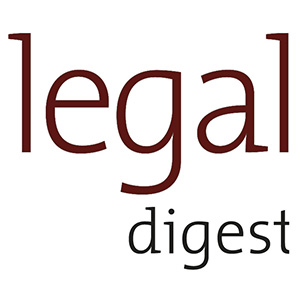Is this the year that CEQA goes down in a flaming pile of EIRs and writs? The year when unwashed masses of tree huggers watch helplessly as greedy developers pave paradise to put up parking lots? Probably not, but there is no doubt the California Environmental Quality Act is under attack these days.
Legislation to weaken CEQA is pending in Sacramento, and a ballot measure that would prohibit citizen lawsuits based on CEQA has received clearance for signatures. The CEQA haters argue that the law is stifling California's economy. (You can swap "AB 32" or "SB 375" into that sentence if you want, but that's for another article.)
I painted CEQA in a somewhat negative light for a story in the current edition of Planning magazine. I'm convinced that CEQA may – but does not have to – inhibit good development. For that story, I focused on proposed legislation that would permit the secretary of Business, Transportation and Housing to exempt up to 125 projects over five years from judicial review based on CEQA. In my mind, removing EIRs from judicial review is no different than exempting projects from CEQA entirely. With no judge looking over their shoulders, cities and counties will approve whatever they want.
So far, that legislation – AB 1805 (Calderon and Nestande) and SB 1010 (Correa and Cogdill) – has failed to go anywhere. The Senate Environmental Quality Committee last week voted down SB 1010. The bills are being pitched as economic development legislation. Democrats, led by Sen. Alan Lowenthal, of Long Beach, demand to know which ready-to-go projects are being held up by CEQA. Proponents haven't had a good answer, because, as anyone in the development industry can tell you, the problem right now is lack of capital. No one is lending money for new development so nothing is ready to go.
Still, the notion of exempting some large projects from CEQA is far from dead this legislative session. In fact, the idea could well become a side discussion during state budget negotiations.
Other anti-CEQA legislation is also in play. Assembly Bill AB 2165 (Knight) would exempt construction of a hospital in Lancaster from CEQA. Assembly Bill 1704 (Jeffries) would exempt water pipeline replacement projects and new recycled water pipeline projects. Neither one of those bills has passed out of committee, at least not yet.
Environmentalists are hot over AB 2313 (Buchanan), which would have the state establish thresholds of significance for greenhouse gas emissions, and require lead agencies to use those thresholds in environmental analyses. That actually seems like a pretty reasonable approach to me, but enviros say it's a sneak attack. The legislation, according to the Center for Biological Diversity, would permit "developers and other polluters... to avoid implementing better planning and building methods that could otherwise reduce their climate impact."
The biggest wildcard, however, might by the ballot initiative by Orange County developer Starpointe Ventures to make the state attorney general's office the sole enforcer of CEQA, and to prohibit citizen lawsuits. Proponents need to gather 434,000 signatures to get the measure on the ballot. Again, the proponents claim CEQA is doing economic harm, an argument bolstered by a generous summary from the Legislative Analyst's Office and Department of Finance. They say: "Unknown, but likely positive, net impact on state and local government revenues from increased economic activity. Unknown fiscal effect, if any, on state and local government costs to mitigate environmental effects of projects."
I think the initiative would be a very tough sell in an election, because environmentalism remains good politics in California, and because so many Californians believe a strong economy and a healthy environment are not simply compatible, but mutually dependent.
Of course, if the unemployment rate remains at 12 percent, and public budgets force schools to close and prisons to set inmates free, well… anything is possible this election year.
- Paul Shigley
Blogs
Is CEQA Safe In This Election Year?
April 15, 2010

